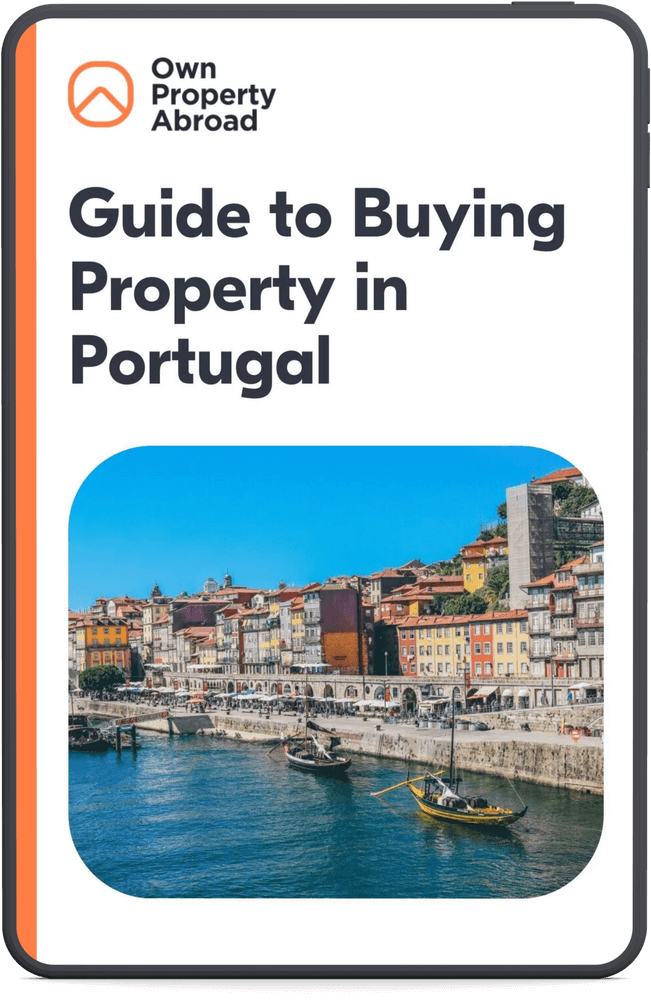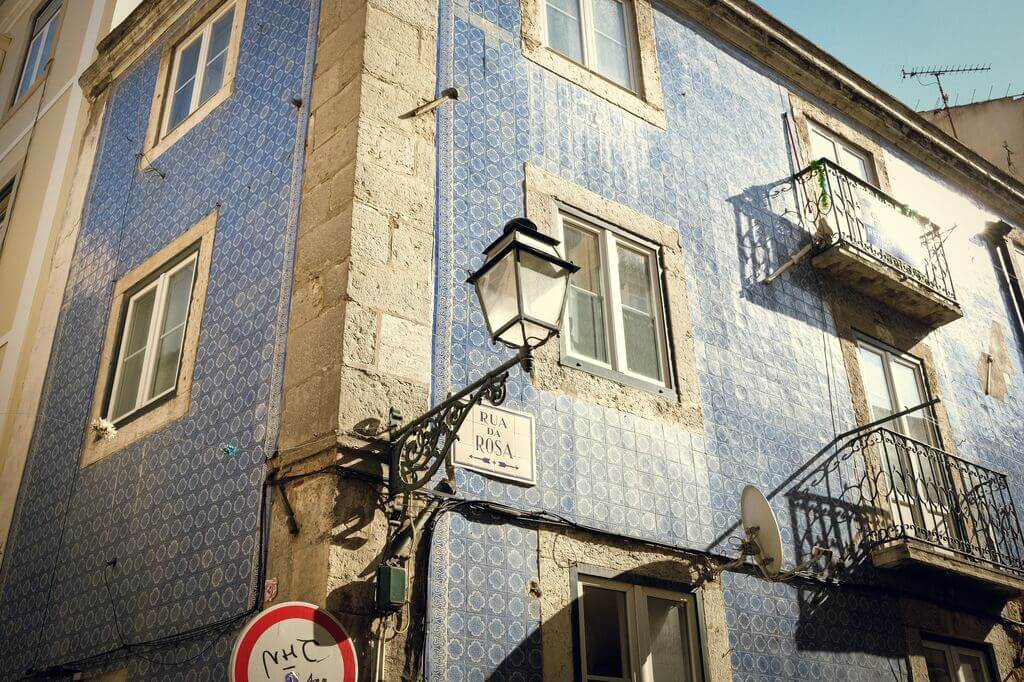Can non-EU citizens buy property in Portugal?
Yes, non-EU citizens can buy property in Portugal. The Portuguese government even stimulates foreign real estate investment by loosening the regulations. There are no restrictions on residents and non-residents from buying property in Portugal. Besides that, the Portuguese government doesn’t differ in property investment between non-EU and EU citizens.
Still, there are a few rules foreigners should be aware of when buying a house in Portugal. For example, buying a home in Portugal doesn’t make you a resident or give you a visa. Non-EU citizens must apply for a visa, even after purchasing property in Portugal. It’s also important to be aware of the different property taxes in Portugal.
Valuable insights and practical advice, distilled from years of expertise and real-world experience.


Buy property in Portugal as a non-EU citizen: 9-step guide
The nine steps below describe clearly how non-EU citizens can buy property in Portugal.
Step 1: Get a Portuguese tax number (NIF)
The first step is obtaining a Portuguese tax number, called Número de Identificação Fiscal (NIF). Obtaining a NIF is free, and everybody can apply for it. This can be done in person at the Portuguese tax office, by email, through a lawyer, tax representative, or a local friend. You only need a picture ID and passport and almost immediately get your NIF.
Take the first step towards obtaining your Portuguese NIF by clicking the button below and completing the process online. For only $150, you can easily acquire your NIF and enjoy the benefits it offers.
Step 2: Open a bank account in Portugal
You need to have a bank account in Portugal to be able to buy property and apply for a visa. Non-EU citizens can easily open a bank account in Portugal. The country has many different banks, but most foreigners generally open a bank account at Millennium BCP, Novo Banco, Banco Santander Totta, Banco BPI, or Caixa Geral de Depósitos.
Foreigners can open a bank account by going to the bank’s local branch and bringing the required documents: passport, proof of address, proof of employment, NIF, Portuguese phone number, and a cash deposit, mostly around €250 ($273). You usually leave the bank holding your new Portuguese debit card.
You can open a bank account in Portugal through an online service, that allows you to open a bank account remotely (3 to 4 weeks) or in-person (1 to 2 weeks). Click the button below to get started.
Step 3: Find a real estate agent
Non-EU citizens better work with Portuguese real estate agents. They are licensed professionals representing the buyer or seller in a real estate transaction. They have access to a broader listing, can secure a better deal, know how to review contracts and comply with regulations, and can identify red flags. Especially non-EU citizens unfamiliar with the Portuguese real estate market benefit from working with a real estate agent.
All Portuguese real estate agents must have a license with the Portuguese Real Estate Regulator (IMPIC). Check Licencia AMI before working together with any real estate agent.

Step 4: Find a notary
Non-EU citizens buy property in Portugal before a notary, as notary services are required to transfer property rights legally. After signing the contract, the notary will register the purchase and enter the new owner’s data in the land register. When finding a public notary, ensure that the office has all the licenses and sufficient experience in providing services to non-EU citizens in Portugal.
Step 5: Conduct due diligence
Always conduct due diligence before buying property in Portugal. This includes the following steps:
- Verify property ownership.
- Inspect the property.
- Certify government compliance.
- Review agreements.
Reputable real estate agents and lawyers can help you conduct due diligence, as they deeply understand the Portuguese legal real estate framework.
Step 6: Sign the provisional purchase agreement and make a downpayment
After finding the right property, you can sign a temporary purchase agreement with the seller, indicating your satisfaction. By doing so, the seller will remove the property from the market, marking it as no longer available for sale. Typically, you must make a downpayment of 10% or more of the total cost at this stage.
The provisional purchase agreement must also include specific information about the remaining steps in completing the transaction. These details primarily revolve around finalizing the deal. The contract should outline the exact date and method for the final payment, ensuring clarity and certainty for all parties involved.
Step 7: Sign the final Deed of Purchase and Sale contract
Non-EU citizens buy property in Portugal by signing the definitive purchase agreement, known as the Deed of Purchase and Sale (Escritura de Compra e Venda). This makes the foreigner owner of the Portuguese property.
Step 8: Pay the property taxes
If non-EU citizens buy property in Portugal, they have to pay IMT tax (Imposto Municipal sobre Transmissões Onerosas de Imóveis) on either the transfer price or the property’s taxable value (IMI), whichever is higher. The buyer is responsible for paying the IMT within one month after the transaction. The tax rates vary depending on the property type and can be found in the table below.
| Property type | Tax rate |
|---|---|
| Rural property | 5% |
| Urban property | 6.5% |
| Property acquired by companies in a blacklisted jurisdiction | 10% |
A special wealth tax (Adicional Imposto Municipal Sobre Imoveis) has to be paid if the property’s worth is over €600,000 ($655,800). For properties owned by companies, the rate is 0.4% based on the total value of the properties held, and 0.7% for individuals who own property. If an individual owns a property valued at more than €1 million ($1.09 million), the tax rate increases to 1%.
Besides, you might as well have to pay stamp duty tax, annual property tax (IMI), and rent tax. Our complete Portugal property tax guide explains more about all related property taxes you should know.
Step 9: Obtain a visa
After non-EU citizens buy property in Portugal, they are still not residents yet. Brits, Americans, or citizens of other countries who want to buy property in Portugal must apply for a visa. There are two different visas to apply for: the Golden Visa and D7 Visa.
Golden Visa
The Golden Visa program is a residency permit launched in 2012 to attract foreign property investors to Portugal. Foreigners (and their family members) can obtain this visa by investing money in Portuguese real estate, which allows them to live, work, and study in Portugal for up to five years. The visa also permits one to travel freely within the Schengen Area. Foreigners must invest a minimum of €250,000 ($273,250) in Portuguese real estate to obtain the Golden Visa. Besides that, there are several other requirements they have to meet, which you find here.
D7 Visa
The D7 Visa, also known as the ‘passive income visa’ or ‘retirement visa’, is a long-term residency permit for foreigners with sufficient financial means to support themselves in Portugal. This visa is not investment-based but based on having enough income from abroad. Foreigners should be able to demonstrate that they have at least a passive income of €8,460 ($9,247) per year (for single applicants) and must meet several other requirements, which can be read here.
Non-EU residents can obtain these visas with help from a Portuguese visa agency.
Buy property in Portugal with Own Property Abroad
Do you want to buy property in Portugal? Own Property Abroad can assist you and ensure a seamless and hassle-free property journey, whether selling or buying real estate in Portugal. Thanks to our knowledge and experience in the local market, we can help with legal requirements, finding suitable properties, negotiating the best deals, and conducting due diligence.
With our expert team, you won’t have to navigate the complexities of the Portuguese real estate market alone. For further information on how we can assist you, kindly drop your details below or email us at [email protected]. Let’s start working on your property success story today!
Valuable insights and practical advice, distilled from years of expertise and real-world experience.


Frequently Asked Questions (FAQs)
How can non-EU citizens buy property in Portugal?
Non-EU citizens buy property in Portugal by following the country’s regulations and procedures. They can invest in real estate and qualify for the Golden Visa program, which grants residency permits to investors. The D7 Visa is another option for foreigners to get a Portugal residency permit.
Can I get residency in Portugal if I buy land?
Buying land in Portugal does not automatically grant residency to foreigners. Non-EU citizens can obtain residency through the Golden Visa program by investing in Portuguese real estate or other qualifying investments. This program allows for residency permits, which enable individuals to live and work in Portugal. The D7 Visa is another option to receive residency in Portugal by showing they have a passive income.
How to buy a house in Portugal as an EU citizen?
EU citizens can buy a house in Portugal without restrictions, as they have the right to own freely and reside in properties within the European Union. They can buy a home in Portugal by following the standard procedures for property acquisition, such as engaging with real estate agents, reviewing available listings, and completing the necessary legal documentation.
How do non-EU citizens get Portuguese residency?
Non-EU citizens can obtain Portuguese residency through the Golden Visa program or the D7 Visa program.




